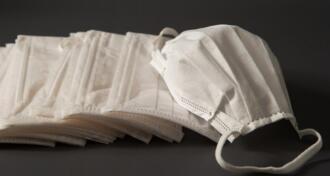On September 2, 2020, the Centers for Disease Control and Prevention ("CDC"), which is under the Department of Health and Human Services ("DHHS"), issued a temporary Order ("Order") halting certain residential evictions to mitigate the risk of transmission of COVID-19.
The CDC's Order comes as other eviction moratoria and eviction protections provided at the federal, state, and local levels have expired or are set to expire. For example, the eviction moratorium provided by the Coronavirus Aid, Relief, and Economic Security ("CARES") Act, which we recently wrote about here, expired on July 24, 2020. This new temporary Order provided by the CDC is set to take effect on Friday, September 4, 2020, once it is published in the Federal Register.
Under the Order, any "landlord, owner of a residential property, or other person with a legal right to pursue eviction or possessory action" is prohibited from evicting a "covered person" through the end of this year (December 31, 2020). The Order defines a "covered person" as "any tenant, lessee, or resident of a residential property who provides to their landlord . . . a declaration under penalty of perjury." The declaration requires the tenant to attest to certain facts relating to his or her hardship or inability to pay rent prior to gaining eviction protection, as provided by the Order.
Specifically, the tenant must attest to the following:
- I have used best efforts to obtain all available government assistance for rent or housing;
- I either expect to earn no more than $99,000 in annual income for Calendar Year 2020 (or no more than $198,000 if filing a joint tax return), was not required to report any income in 2019 to the U.S. Internal Revenue Service, or received an Economic Impact Payment (stimulus check) pursuant to Section 2201 of the CARES Act;
- I am unable to pay my full rent or make a full housing payment due to substantial loss of household income, loss of compensable hours of work or wages, lay-offs, or extraordinary out-of-pocket medical expenses;
- I am using best efforts to make timely partial payments that are as close to the full payment as the individual's circumstances may permit, taking into account other nondiscretionary expenses;
- If evicted, I would likely become homeless, need to move into a homeless shelter, or need to move into a new residence shared by other people who live in close quarters because I have no other available housing options.
- I understand that I must still pay rent or make a housing payment, and comply with other obligations that I may have under my tenancy, lease agreement, or similar contract. I further understand that fees, penalties, or interest for not paying rent or making a housing payment on time as required by my tenancy, lease agreement, or similar contract may still be charged or collected.
- I further understand that at the end of this temporary halt on evictions on December 31, 2020, my housing provider may require payment in full for all payments not made prior to and during the temporary halt, and failure to pay may make me subject to eviction pursuant to State and local laws.
The CDC's Order, however, does not prevent landlords from evicting tenants for: "(1) engaging in criminal activity while on the [leased] premises; (2) threatening the health or safety of other residents; (3) damaging or posing an immediate and significant risk of damage to property; (4) violating any applicable building code, health ordinance, or similar regulation relating to health and safety; or (5) violating any other contractual obligation, other than the timely payment of rent or similar housing-related payment (including non-payment or late payment of fees, penalties, or interest)."
Landlords who violate the Order face significant penalties. For individual violations, an individual is subject to "a fine of no more than $100,000 if the violation does not result in death or one year in jail, or both, or a fine of no more than $250,000 if the violation results in a death or one year in jail, or both . . . ." For businesses or other organizations, the penalty is much steeper. For example, "an organization violating this Order may be subject to a fine of no more than $200,000 per event if the violation does not result in a death or $500,000 per event if the violation results in a death . . . ." Furthermore, the Order provides the federal government, through the United States Department of Justice, with the authority to prosecute potential violators.
In summary, the CDC's Order provides temporary relief to those residential tenants facing eviction who submit the required declaration in good faith, through the end of the year. The Order, however, does not absolve the tenant from paying rent or restrict a landlord from applying penalties, interest, or late fees on the tenant's account for non-payment of rent. Additionally, the CDC's Order does not relieve landlords of their debt service obligations if a tenant seeks relief under the Order. The CDC has merely "kicked the can down the road" with respect to residential tenants' payment obligations.
We will continue to monitor this Order and the issuance of any regulations and will provide updates as new information on this issue is published by the federal government. If you need legal guidance with regard to residential evictions or lease disputes, contact our Litigation Practice Section.








